Showing 36 results for:
privacy
Popular topics
All results
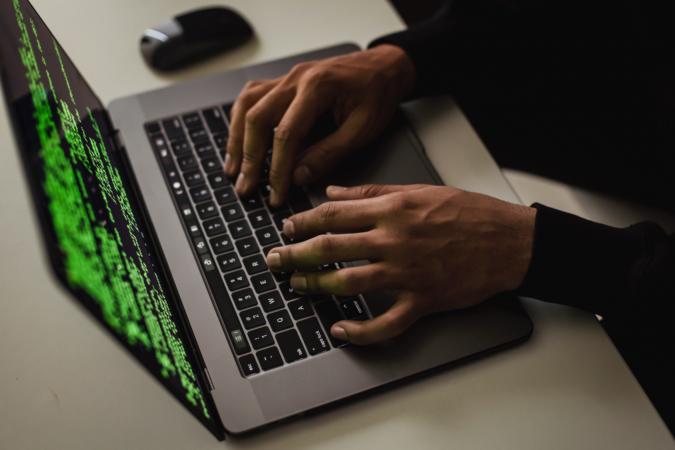
Do you remember the time when working from home was considered a luxury? Now, workers across the world have transitioned to working remotely due to the unprecedented impact of COVID-19. Remote work has become a necessity in today’s world. However, the sudden transition to remote work has left many gaps in security strategies and protocols. More companies are considering making the transition to remote work long-term, but this will require making changes to the security protocols and strategies to ensure protection against identity theft, data breaches, and other cyberattacks. What security measures does your business have in place to ensure your remote workers are protected? Tip #1: Invest in the right antivirus software One of the most effective resources available to your business is antivirus software . A cyber attack can result in significant financial and reputational damage to a business. There is a strong chance the numbers will rise as more cyber criminals look to obtain...
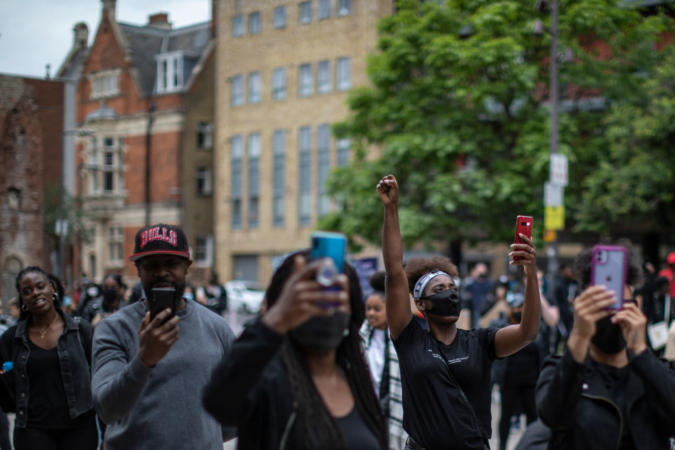
A huge concern for many protesters and activists on the frontlines is digital privacy. With law enforcement having access to more surveillance tools, they have the power to use such tools to track protesters and silence their movements. According to Wired , there are two aspects of digital surveillance that people should be mindful of when protesting — data that can be obtained from your cellular device and law enforcement surveillance, which includes wireless interception of text messages tracking tools, and facial recognition. Police have been documented for being violent and aggressive toward civilians during these recent protests and haven’t hesitated to attach or arrest peaceful protesters, so it’s safe to assume any digital evidence they obtain can and will be used against people. The best way for protesters to combat digital surveillance from law enforcement is to use safe practices for devices when participating in demonstrations. Follow the below tips to better equip...

Though Amazon reportedly experienced another record-setting holiday season , it also suffered its share of challenges. Among the holiday favorites for many Amazon shoppers was Wyze, the economical, smart home camera system launched by former Amazon staff. Though the top-selling item provided a major boost for Amazon’s holiday revenue, a new data breach may change that record success. A Wyze security breach confirmed in late December is said to have affected more than 2 million customers , according to Fortune. Though the full extent of the breach has yet to be revealed, it involved account information, such as email addresses, Wi-Fi information, and security tokens. According to Wyze, no financial data or passwords were compromised . The latest breach places Amazon at the epicenter of another security glitch. Wyze likely became a viable alternative for wary shoppers shying away from Amazon’s controversial Ring home camera system. Amazon and Ring were recently named in a class-action...
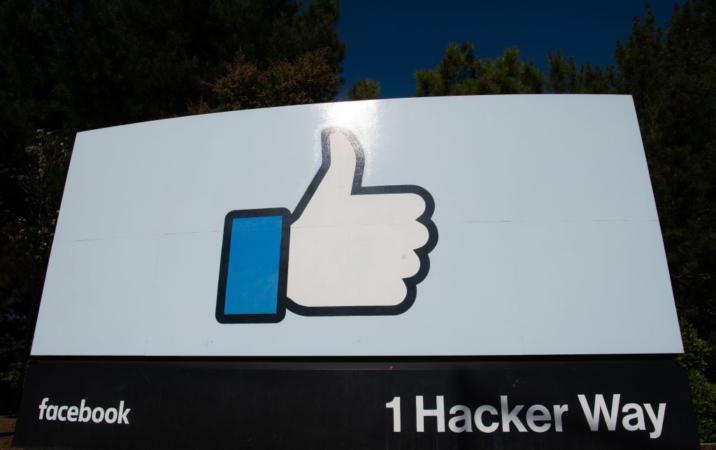
After coming under frequent scrutiny for security breaches and violations, Facebook may now be championing an unexpected cause: privacy. A New York Times report suggests that the social media titan is reviewing options for users to have encrypted messaging. While Facebook views this secure option as a positive for its users, Attorney General William Barr sees the encryption as a negative for law enforcement. “ Mr. Barr said drug cartels, child pornographers and other criminals increasingly used and hid behind messaging apps that were beyond investigators’ access even with a warrant, ” according to the Times. Facebook offers a robust counterargument to law enforcement officials who suggest that new security layers will make tracking criminals even more difficult. According to Facebook, criminals will have even more victories if the company’s users lack options for additional security. Yet, for many, the privacy debate exceeds the scope of crime and justice. As politics has shown,...

In 2016, when FBI Director James Comey conducted a question-and-answer session on privacy at Kenyon College , one of his revelations baffled the audience. Comey admitted to covering his laptop’s webcam to ensure privacy, and encouraged others to do the same. Some thought it ironic, coming from a federal agent whose work involved the very infiltration of privacy. In the three years since Comey’s initial warning, the information security landscape has changed dramatically. Not only did a presidential election make Americans think twice about online security threats and the ramifications of hacking in politics, but major breaches at well-respected companies such as Target, Equifax, and Facebook also revealed the impact on our wallets and on our identity. While many can imagine what hackers could want with your personal and account information, it may be harder to discern how your webcam video feeds and sound bites could prove valuable. Hackers can actually use a Remote Access Tool to...
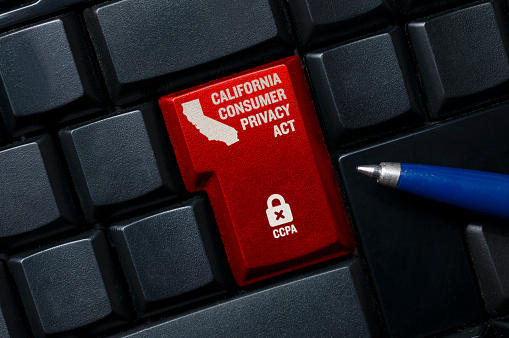
The California Consumer Privacy Act may be a beacon of hope for consumers who want to take the reins back from Big Brother. The law is the brainchild of Californians for Consumer Privacy Founder Alastair Mactaggart , who helped fund the ballot initiative that eventually became law. CCPA — which will take effect on Jan. 1 — will offer individuals the right to prevent data collection companies from selling their personal information. It also gives consumers the right to understand how companies plan to use their data and sue in the case of specific violations. The first of its kind, the law may give a green light to other states seeking to avoid the approval quagmire of similar federal privacy initiatives in favor of introducing local efforts. As reported in a recent USA Today article , though the new law gives consumers certain rights, it may not give them the wherewithal to exercise them. For example, under the CCPA, offenders can be fined from $2,500 to $7,500. However, the...

There may be no such thing as privacy, according to a New York Times article by Stuart A. Thompson and Charlie Warzel. In a study on privacy and security, the Times assessed the sheer power of location tracking devices and their encroachment upon a basic right to privacy. The danger in this type of surveillance is that in addition to known sources and apps, monitoring happens with several other unknown apps. The Times Privacy Project revealed the location information of a sample population provided through phone app data. “In the cities that the data file covers, it tracks people from nearly every neighborhood and block, whether they live in mobile homes in Alexandria, Va., or luxury towers in Manhattan,” Thompson and Warzel shared in the Times. Perhaps more shocking than that revelation is the fact that the tracking measures were put in place not by phone companies that provide the apps, but by an unknown entity: the location tracking companies that are bundled with the apps. “Even...

The return of Toys “R” Us has been heralded by many. However, the praise falls short when it comes to the former toy giant’s new video surveillance, which some say, targets children. In its new incarnation, Toys “R” has partnered with tech startup bt8a and analytics expert Retail Next to obtain information about its customers. The system’s ability to track the movement of shoppers to better understand their interests and cater to them is considered problematic, as many Toys “R” Us customers are minors, and there are laws in place to protect their privacy. As noted in a recent WIRED article, “ Collecting information on kids is a highly sensitive issue, and US law carves out various additional protections or restrictions when it comes to minors .” In addition, informed parental consent is generally required. A spokesperson for RetailNext has indicated that personal data of children is not obtained intentionally or retained, and that height parameters help ensure that children are not...

You may not always realize it, but your car can hold a lot of information about you. Holding personal contacts, location information and more, essentially makes them “roving computers.” So, how does that impact the fourth amendment? The fourth amendment is what protects you from unreasonable search and seizures. However, there’s a “vehicle exception,” which means police don’t need a warrant to search your car for physical items. Now, the American Civil Liberties Union (ACLU) says that data isn’t covered under that exception. Spurred by the case Mobley v. State in Georgia, the ACLU argued in an amicus brief that “cops cannot conduct warrantless searches of computers — even if that computer happens to be on wheels.” The Mobley case began after a deadly car crash in Georgia. Police took data from the Event Data Recorder — or “black box” — on Mobley’s car in order to figure out his speed before the crash. They used this information to increase the severity of charges against Mobley....

If you’ve ever used Venmo, you know that the app defaults to showing your transactions publicly. That means everyone knows when you’ve sent a friend $5 for pizza or an Uber ride home. What users don’t know is that anyone can make their transactions private. Last year, former Mozilla fellow Hang Do Thi Duc published “Public By Default, ” a compilation of 207 million Venmo transactions. Now, another person has gathered millions of people’s Venmo transactions to prove that — a year later — nothing on the app has changed. Computer science student, Dan Salmon scraped seven million transactions during six months, TechCrunch reported . Salmon downloaded transactions through the company’s developer API . He didn’t need users’ permission or even the app to do so. “There’s truly no reason to have this API open to unauthenticated requests,” Salmon told TechCrunch. “The API only exists to provide like a scrolling feed of public transactions for the home page of the app, but if that’s your goal...

Facebook is no stranger to privacy scandals, much to the frustration of many users. Now, investment firms have even begun side eyeing the social media giant. Investment firm S&P Dow Jones Indices has decided to remove Facebook from its S&P 500 ESG Index, Business Insider reported . Essentially, the index tracks how socially responsible companies are. It scores them based on environmental, social, and corporate governance rankings. Reid Steadman, global head of ESG at S&P, explained Facebook’s removal in a blog post : “The specific issues resulting in these scores had to do with various privacy concerns, including a lack of transparency as to why Facebook collects and shares certain user information. These events have created uncertainty about Facebook’s diligence regarding privacy protection, and the effectiveness of the company risk management processes and how the company enforces them. These issues caused the company to lag behind its peers in terms of the ESG performance.”...

Facial recognition has been widely criticized for the risks it poses to vulnerable communities. The technology typically reinforces pre-existing social biases, as seen by its inability to read anyone who isn’t a white man . It also poses severe privacy risks. Facial recognition makes it easy for government agencies to develop continuous, mass surveillance of vulnerable communities. With all of these risks, it’s not a technology that most people would want to use on kids. Despite that, Lockport City School District in New York is trying to test a facial and object recognition system called “Aegis.” In September, the district used $1.4 million of the $4.2 million it received in funding through the Smart Schools Bond Act to install the system, Lockport Journal reported . Superintendent Michelle Bradley announced plans to begin testing the system on June 3. Bradley described the test as an “initial implementation phase.” That means the school wanted to test the system for any necessary...

Thanks to poor federal regulations, it’s up to each individual state to protect their residents’ data. Recently, Maine’s State Senate passed a landmark bill that will look out for people’s internet privacy. Your internet service providers (ISPs) have a lot more information on you than you might think. Your internet history (including the sites you visit, how often, location data, etc.) can tell a lot about you as an individual. Maine’s new bill — LD 946 —now requires that ISPs get people’s consent before selling or offering access to their private data. In a blog post , the American Civil Liberties Union (ACLU) Maine noted: “The personal information ISPs collect and sell is increasingly being used by advertisers to discriminate against certain communities. Advertisers and data brokers are increasingly using data to decide what prices to advertise to someone, the content they should steer them to, and even the types of loans to offer them.” Although this bill is important, it’s not...

If you use Google Chrome, you most likely have at least one or two extensions. Although extensions can improve your browsing experience, that also means an extra set of eyes on your personal data. Now — as a part of Project Strobe — Google is putting restrictions on extensions to help minimize their access to users’ data. Ben Smith, Google Fellow and Vice President of Engineering, announced the changes in a blog post. The biggest change is that all extensions have to use the “minimum set of permissions necessary.” Essentially, if something can be achieved multiple ways, the extension has to use the one that requires the least-sensitive amount of data. In addition, extensions now have to post privacy policies in the Chrome Web Store. Google’s past policy already required that of extensions dealing with personal and sensitive user data. Now, they’re expanding the category to include any extensions handling user-provided content and personal communications. There are over 180,000...
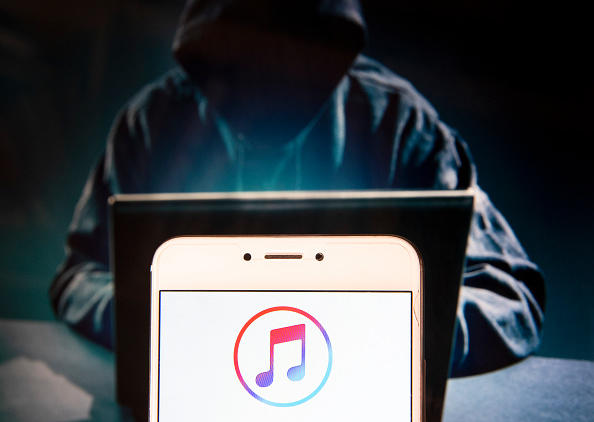
Apple loves to claim a pro-privacy stance, but three iTunes users claim that the company disclosed their listening habits to advertisers. While Apple CEO Tim Cook says, “We are very much on your side,” this situation may prove otherwise. In a lawsuit filed last week , the users say Apple sold personal listening information directly to third parties. They also say that app developers were given access to iTunes libraries through Media Player. The users themselves come from Rhode Island and Michigan, so part of their claim is that Apple violated laws specific to those states. They’re seeking a class-action status alongside other state residents. “Apple has disregarded its legal responsibilities to these individuals by systematically disclosing their Personal Listening Information,” the document said. The lawsuit specifically referenced Apple’s attempts to “capitalize on recent revelations concerning the data-sharing practices of its competitors.” In early 2019, Apple put up a massive...